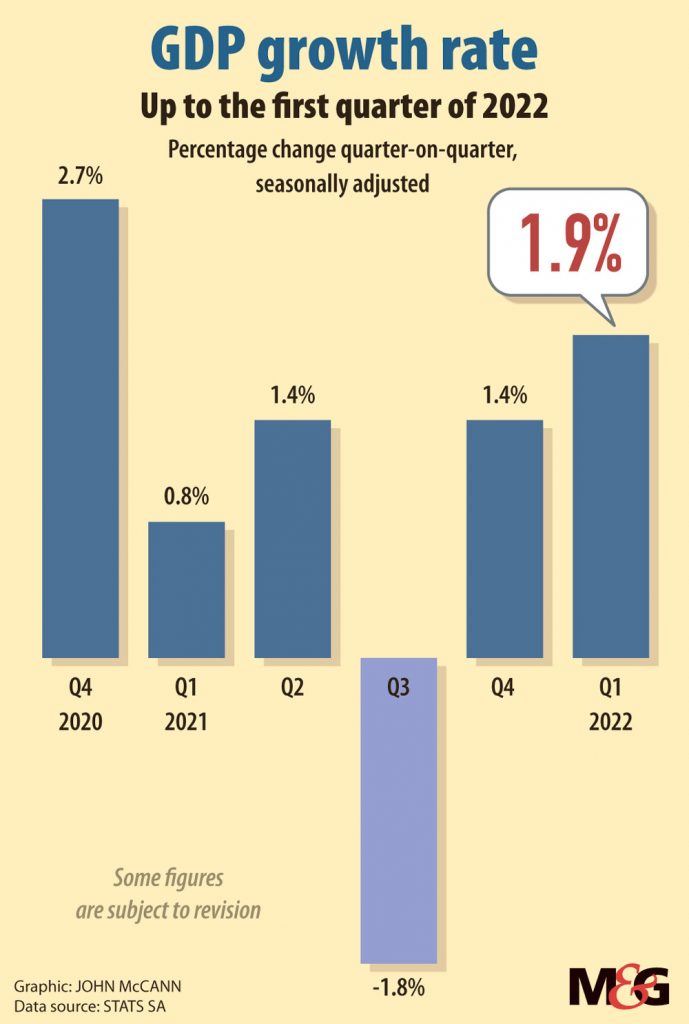Annual consumer inflation was unchanged at 3.2% in February at 3.2%, with increases registered in housing and utilities, food and alcoholic beverages and restaurants and accommodation offset by decreases in the services sector, Statistics South Africa said on Wednesday.
(Guillem Sartorio/Bloomberg via Getty Images)
South Africa’s economy expanded by 1.9% in the first quarter of 2022, as eight industries recorded positive growth which was above expectations.
After growing by 1.2% during the fourth quarter of 2021, the further expansion in the first three months of this year took the economy — which was ravaged by Covid-19 — back to pre-pandemic levels.
According to data released by Statistics South Africa on Tuesday, the sectors that contributed to the growth included the manufacturing industry which increased by 4.9% during the quarter, while trade, catering and accommodation rose by 3.1%; the finance, real estate and business services industry was up 1.7% and the personal services industry increased by 1.1%.
The mining and quarrying industry however declined by 1.1% in the first quarter, with decreased production reported for platinum group metals as well as iron ore and gold.

The construction industry also dipped by 0.7% in the first quarter as contractions were reported for residential buildings and other construction work.
The statistics agency reported that household final consumption expenditure increased by 1.4%, with a 6.5% increase in spending on restaurants and a 2.5% increase in spending on food. Government final consumption expenditure added 1%, gross fixed capital formation advanced by 3.6% in the first quarter.
Prior to the release of the data, Nedbank economists had predicted that the momentum built in the last quarter of 2021 would be carried through into 2022. However, the economy was somewhat weighed down in January and February by electricity load-shedding while the Russia-Ukraine war took its toll in March.
But overall, the economy benefited from improved finances and the removal of Covid-19 lockdown restrictions.
According to the Bureau for Economic Research, high-frequency activity and survey data suggests that the economy sustained good momentum at the start of the year after the recovery in the fourth quarter of 2021.
“Based on the BER survey results for the 2022 first quarter and anecdotal evidence, our expectation is that the loosening of lockdown restriction at the end of 2021 and the decline in Covid-19 infections after the Omicron wave boosted services sector activity,” it said.
In the budget, tabled in February, the treasury said it expected the economy to reach its pre‐pandemic GDP this year. However, second-quarter GDP numbers could be dampened by the floods which hit KwaZulu-Natal and the further impact of the Russia/Ukraine war as prices of fuel and food continue to rise.
Anathi Madubela is an Adamela Trust business reporter at the M&G.